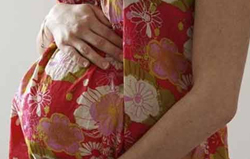 Melbourne, Jun 20: An 11-year-old boy in New Zealand has become a father after conceiving a child with the 36-year-old mother of a school friend.
Melbourne, Jun 20: An 11-year-old boy in New Zealand has become a father after conceiving a child with the 36-year-old mother of a school friend.
The woman coerced the boy, from Auckland, into repeated sexual encounters over a period of time before becoming pregnant, the New Zealand Herald newspaper reported.
The woman gave the boy beer to drink and then later took part in a sexual encounter with him, the report said.
The Child Youth and Family Services, which took a baby into care about two months ago, confirmed it was dealing with a case at the school and that it was before the courts.
According to the report, both the father and child are now understood to be in care after the principal at the boy's school raised the alarm.
The case has caused counsellors working in the area of child sexual abuse to highlight the lack of attention given to women as potential offenders.
It has prompted Justice Minister Judith Collins to step in saying she will seek more information on the law.
"This case raises an important point. I will seek advice from officials on whether or not a law change is required."
And it has also highlighted disparity in the law of rape, which makes it impossible for a woman to be accused of the crime. Present legislation stipulates the crime of rape applies only when men force sex.
In contrast, women who force an unwilling partner to have sex face charges of sexual violation. Both carry a maximum sentence of 20 years but only men can be charged with rape.
The principal said he was shocked when the child revealed the details. The boy approached him in his office about two-thirds of the way through the 2012 school year and told the principal he had a disclosure to make.
"You won't be very happy with me," he recalled the boy saying. He said he had been having sex with his friend's mother "and it needs to stop".
The principal said the boy was "very aware" of the situation he was in and determined he wanted the contact to end.





Comments
Add new comment